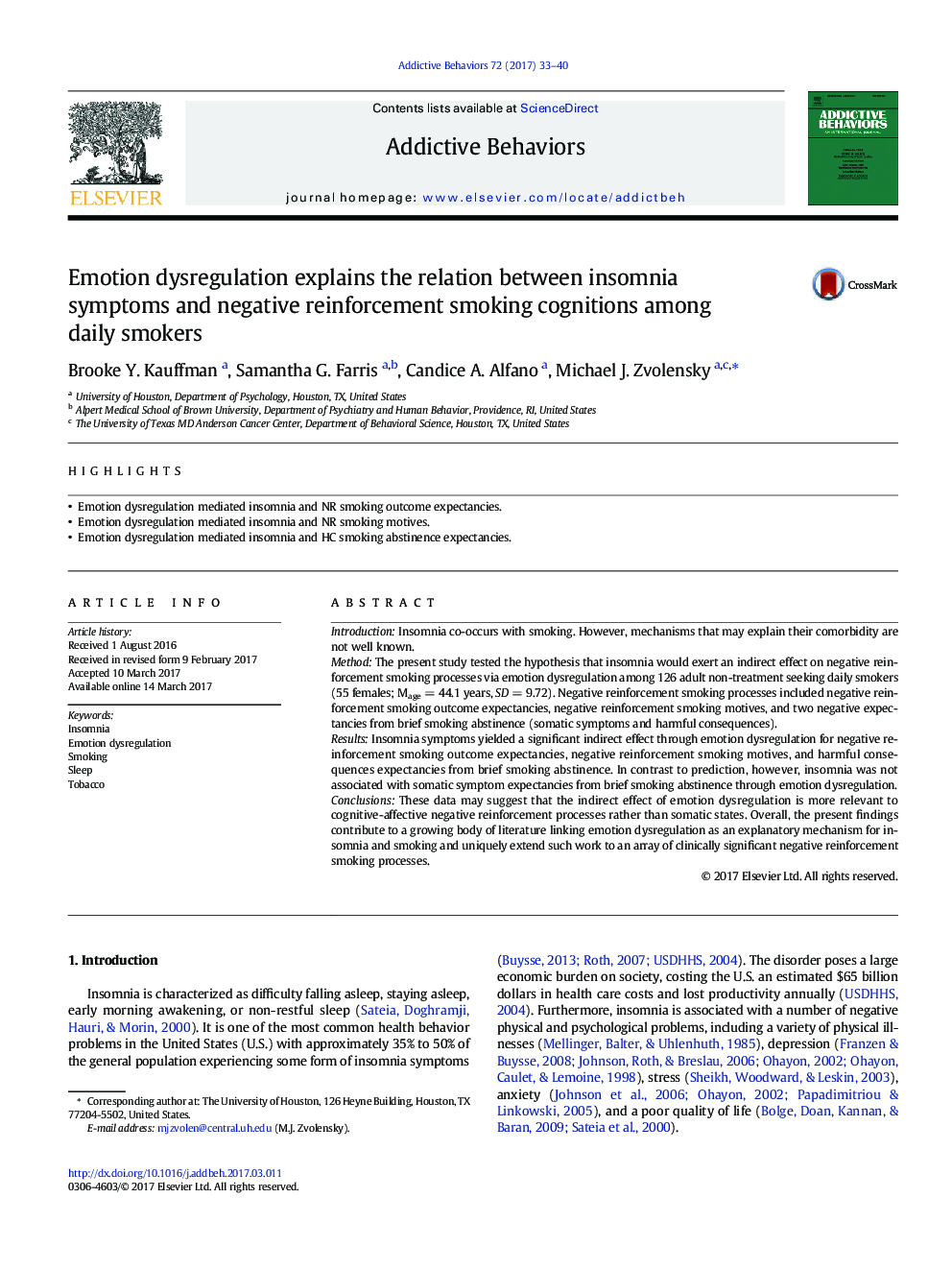| Article ID | Journal | Published Year | Pages | File Type |
|---|---|---|---|---|
| 5037761 | Addictive Behaviors | 2017 | 8 Pages |
â¢Emotion dysregulation mediated insomnia and NR smoking outcome expectancies.â¢Emotion dysregulation mediated insomnia and NR smoking motives.â¢Emotion dysregulation mediated insomnia and HC smoking abstinence expectancies.
IntroductionInsomnia co-occurs with smoking. However, mechanisms that may explain their comorbidity are not well known.MethodThe present study tested the hypothesis that insomnia would exert an indirect effect on negative reinforcement smoking processes via emotion dysregulation among 126 adult non-treatment seeking daily smokers (55 females; Mage = 44.1 years, SD = 9.72). Negative reinforcement smoking processes included negative reinforcement smoking outcome expectancies, negative reinforcement smoking motives, and two negative expectancies from brief smoking abstinence (somatic symptoms and harmful consequences).ResultsInsomnia symptoms yielded a significant indirect effect through emotion dysregulation for negative reinforcement smoking outcome expectancies, negative reinforcement smoking motives, and harmful consequences expectancies from brief smoking abstinence. In contrast to prediction, however, insomnia was not associated with somatic symptom expectancies from brief smoking abstinence through emotion dysregulation.ConclusionsThese data may suggest that the indirect effect of emotion dysregulation is more relevant to cognitive-affective negative reinforcement processes rather than somatic states. Overall, the present findings contribute to a growing body of literature linking emotion dysregulation as an explanatory mechanism for insomnia and smoking and uniquely extend such work to an array of clinically significant negative reinforcement smoking processes.
